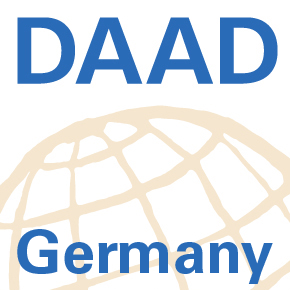The German Academic Exchange Service (DAAD) invites scientists and administrators from universities and research institutions to participate in a tour with focus on interdisciplinary research in biodiversity and climate change in Germany.



The German Academic Exchange Service (DAAD) invites scientists and administrators from universities and research institutions to participate in a tour with focus on interdisciplinary research in biodiversity and climate change in Germany.
DAAD webinars are targeted at faculty and administrators in the U.S. and Canada who advise on study and research abroad, as well as students and scholars in Canada and the U.S. interested in applying for DAAD funding themselves.
As an educator, I believe that intercultural experiences have an important role to play in a world situation that is – to say the least – very confusing. This year, 2011, marks a decade since the tragic events of September 11. Today's undergraduate college students were eight to twelve years old in 2001 and consequently have spent their intellectually formative years with post-9/11 media coverage, little of which addressed the need for intercultural understanding.
Information on applying to DAAD's Chemistry Research and Higher Education visit for December 2010.
DAAD's application announced for Germany Today 2010 in Germany and Belgium.
Experiences teaching ESL and information on the ESL conference in March 2010 in Boston.
This past June, I had the honor of participating in the Germany Today Program, sponsored by the DAAD (Deutscher Akademischer Austausch Dienst - The German Academic Exchange Service.) I was part of a delegation of faculty and administrators from various universities in the US, Canada, Australia and New Zealand. The DAAD generously provided a comprehensive program with very little direct cost to participants. The program started in Bonn, traveled to Brussels and ended in Berlin. Each day we met with DAAD's local staff, researchers, university faculty and administrators, grants organizations and DAAD funded students and scholars. There was a strong emphasis on the Bologna Process and current policy discussions in the member countries. Dialogue was particularly meaningful because we had nearly a week to continue our discussions with colleagues over lunch, dinner and bus journeys. We were able to not only reflect on our experiences during the week, but to also learn about trends and best practices on their campuses and in their home countries. The added bonus of this program was networking within the structure of a very strong training experience.
You must be logged in to post a comment.